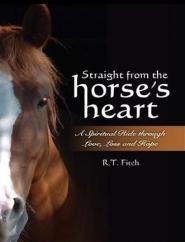Source: AppliedAnimalBehavior.com and authored by Carlos Antonio Gonzalez-De Cara, Alejandro Perez-Ecija, Raul Aguilera-Aguilera, Evagenlina Rodero-Serrano and Francisco Javier Mendoza
Highlights
- Donkeys are ideal for assisted-therapy (AT).
- First study evaluating sensory and temperament tests for AT selection in donkeys.
- Donkeys are more reactive to visual than sound stimuli.
- First study establishing a cutaneous sensitivity mapping in this species.
- Donkeys are cautious, reacting more strongly to unexpected stimuli.
Abstract
Donkeys are used in animal-assisted therapy (AT) for mental disorders or motor disabilities in elderly people and children, but tests for selecting donkeys for AT have not been studied. The aim of this work was to characterize donkey’s reaction to sensory (tactile and sound) and temperament (fearfulness and reactivity to human) tests in order to select donkeys for AT. Sound test, tactile tests (stifle-haunch axis test, von Frey filament test and a novel test described by the authors), fearfulness (novel object, surprise and crossing an unknown surface tests) and reactivity to human (unfamiliar passive and active human tests) were evaluated in thirty-six Andalusian donkeys. Descriptive analysis was performed and differences between groups were determined. Donkeys were not very reactive to sound stimuli. Donkeys were more reactive to thinner filaments and instruments, with no body side laterality detected. A cutaneous sensitivity mapping was also established. In relation to temperament tests, donkeys were more reactive to visual than sound stimuli. Donkeys appear to be markedly cautious and an unexpected stimulus disrupts their routine longer time than a stimulus that approaches slowly and gradually. Moreover, donkeys seem to have a reserved character. Age affected human interaction tests, since longer time was needed to finish some tests in older donkeys. In conclusion, aforementioned tests can be used for AT selection, allowing to discard donkeys with undesired traits. Further studies are necessary to investigate age or breed effect on aptitude for AT.
http://www.appliedanimalbehaviour.com/article/S0168-1591(16)30325-2/abstract
Categories: The Force of the Horse, Uncategorized









There is something very special and intuitive about donkeys and I am not surprised to learn they make great animal-assisted therapy … not to mention there is nothing cuter than to see baby donkeys at play!
LikeLiked by 1 person